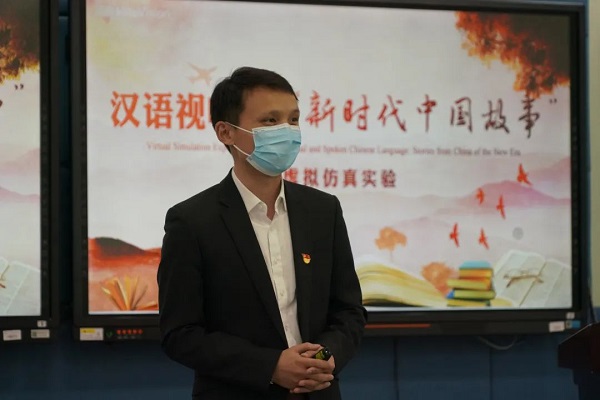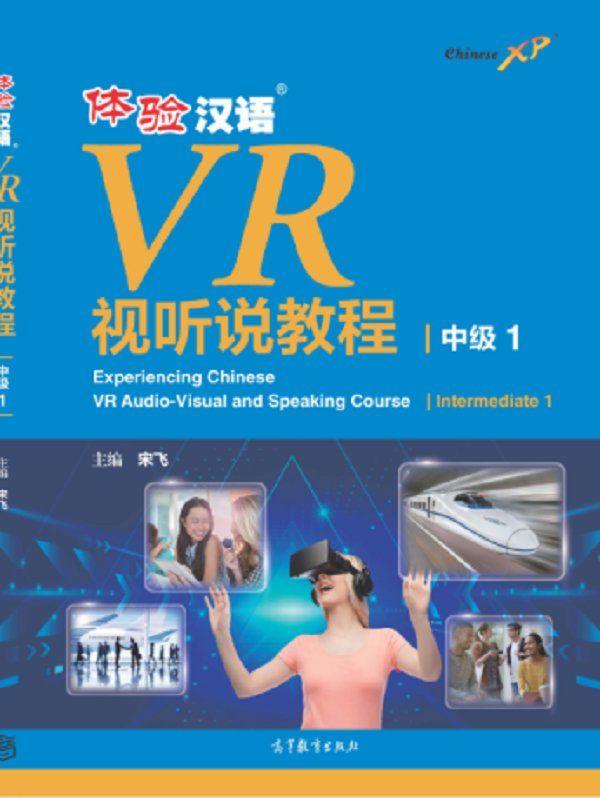
Virtual reality technology gives people immersive experiences. It has been used in videos and games, and now the use of it extends to teaching and learning Chinese.
Song Fei, deputy dean in the School of International Education of Chinese Language of Beijing International Studies University (BISU), developed a series of VR Chinese textbooks, breaking new grounds in teaching international students Chinese language.

Song develops China’s first VR Chinese textbooks.
Explaining the original intention of using VR for teaching, Song said that he wanted to seize the opportunity of technological advancement, and hoped to solve the practical difficulties in language education.
"I think currently in Chinese language teaching, teachers are not particularly sensitive to new technologies such as VR and AI," Song said.
With the enhancement of China's national strength comes a large demand for learning Chinese language from across the world. Many international students come to China to study Chinese, hoping for a real language environment. Unfortunately, not all of them are able to study in China, and many can only choose online courses, negatively affecting their learning.
Realizing this, Song conceived the idea of using VR to immerse language learners in a virtual environment.
He developed relevant Massive Open Online Courses (MOOCs) and created a set of accompanying teaching materials, which follows the experience of Wang Zhejun, an American student learning Chinese, after his arrival in China. It spans 20 scenarios, including airport pickup, shared bicycles, and exam registration.

The VR Chinese language textbook
The text book has been included in the "Experiencing Chinese" series, selected by the Higher Education Press.
After scanning a QR code and placing their phones into the VR glasses, learners can obtain an interactive learning experience.
Song led a team of 20 to develop the VR textbooks, including teachers, graduate students and international students.
Unlike conventional videos, VR videos require a 360-degree panoramic view, so a potential loophole may appear anywhere. Even the cameraperson needs to swiftly exit the scene after pressing the shutter.
Moreover, the videos need to be made in a single shot. Despite the enthusiasm of the participants, their lack of skills led to numerous retakes, making the filming process extremely challenging.
The team members developed a strong bond in this process. Almost every time after completing the filming tasks, Song would treat everyone to a meal, ending the day's work in laughter and joy.
Song majored in finance during his undergraduate studies, crossed over to Chinese language and literature for his master's degree, and pursued linguistics and applied linguistics during his doctoral studies, all driven by interest.
His current research focus is on international Chinese teaching and Chinese information processing, two different topics seen as fundamentally interconnected by Song.
"One is 'Teaching people Chinese', the other is 'Teaching computers Chinese,' that's all," he said.

Links
